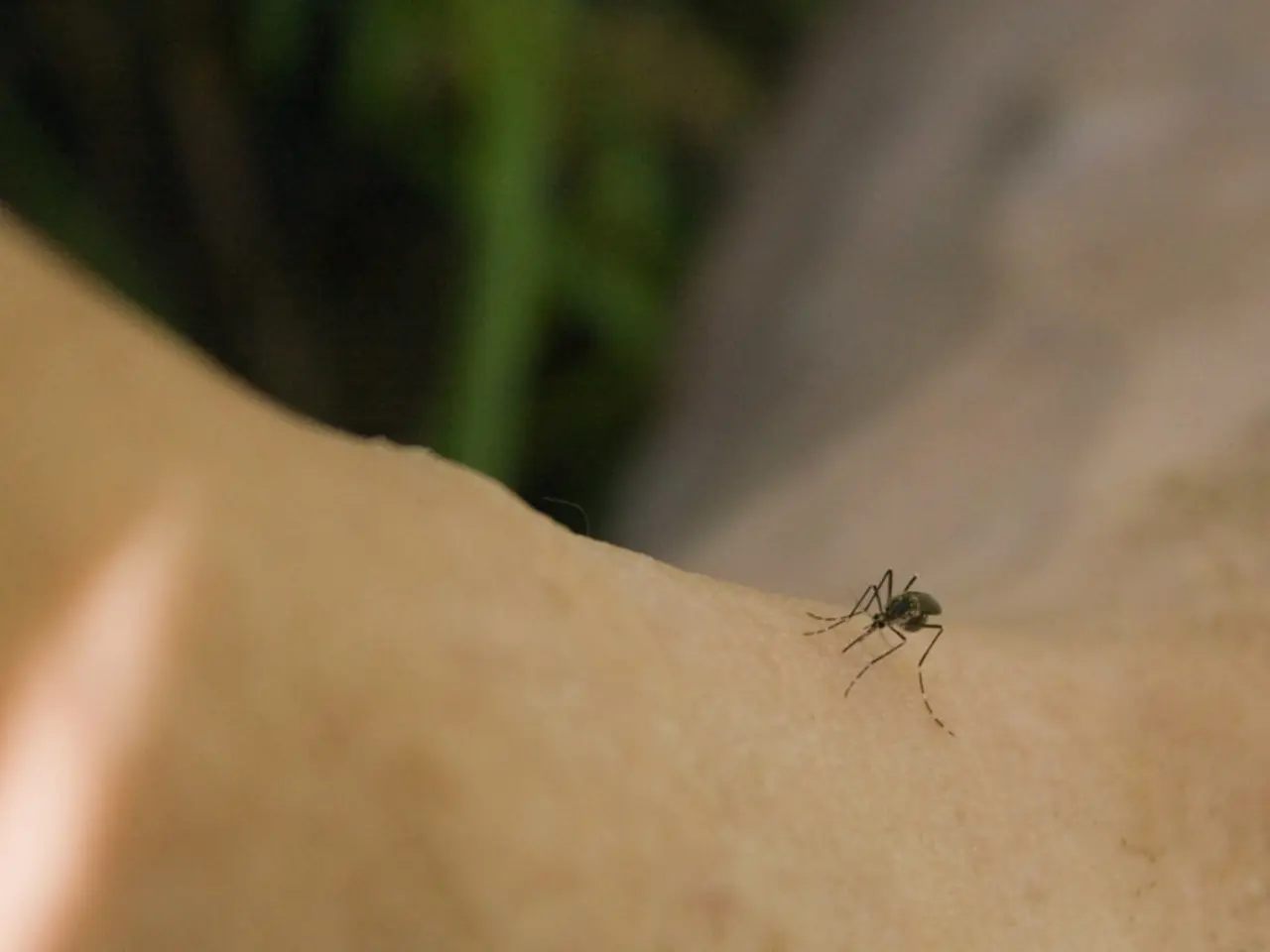Mosquitoes find vanilla extract ineffective as a repellent, contrary to popular belief.
Headline: Vanilla Extract: A Mild and Temporary Mosquito Repellent, Not a Reliable Solution
Vanilla extract, a popular kitchen staple, might offer a brief and mild repellent effect against mosquitoes and some other insects. However, it is not nearly as effective or reliable as established repellents, according to health authorities and scientific research.
The Cleveland Clinic warns that vanilla extract could potentially keep mosquitoes at bay for a short period but not long enough to be considered safe and reliable protection against bites or insect-borne diseases. In fact, it may even attract some other insects like wasps or flies.
Anecdotal evidence from TikTok videos and pest control blogs suggests that vanilla extract might deter bugs and be more "natural" or safe to apply on skin or surfaces. However, these claims are not backed by rigorous scientific studies, and users typically note the need for frequent reapplication due to the limited duration of the effect.
In contrast, tested repellents such as DEET, Picaridin, IR3535, and oil of lemon eucalyptus are scientifically proven to be effective and are recommended by health authorities for true protection.
DEET: Considered the gold standard, DEET offers long-lasting and broad-spectrum insect protection.
Picaridin: Comparable to DEET in effectiveness but often preferred for being less odorous and less irritating.
IR3535: An effective and approved insect repellent, often used in Europe.
Oil of lemon eucalyptus: A plant-based repellent that has been scientifically shown to provide protection close to low concentrations of DEET.
While the scent of vanilla extract might mildly deter mosquitoes at times, its repellency is weak, temporary, and inconsistent. It should not replace proven repellents if reliable insect protection is needed.
It's essential to remember that mosquitoes can sense your scent from far away, making vanilla extract an ineffective long-term mosquito repellent. Furthermore, vanilla extract does not protect against diseases that bugs can spread, such as malaria, Lyme disease, Chagas disease, West Nile virus, and Zika virus.
When applying insect repellent, it's advisable to apply it after sunscreen to prevent irritation. For those seeking a more "natural" option, oil of lemon eucalyptus is a solid, science-backed choice. However, keep it out of pet's reach as eucalyptus can be toxic to dogs and cats if ingested.
In summary, while vanilla extract might provide a very short-term and mild repellent effect against mosquitoes and some other insects, it is not a reliable solution to keep bugs from biting. For true protection against insect-borne diseases and bites, it's best to opt for established repellents like DEET, Picaridin, IR3535, or oil of lemon eucalyptus.
[1] Cleveland Clinic. (2021, July 27). Mosquito repellents: What works and what doesn't. Retrieved from https://health.clevelandclinic.org/mosquito-repellents-what-works-and-what-doesnt/ [2] U.S. Environmental Protection Agency. (n.d.). Choose an insect repellent. Retrieved from https://www.epa.gov/insect-repellents/find-insect-repellent-right-you [3] TikTok User @HealthyHacks. (2021, June 10). DIY Mosquito Repellent [Video file]. [4] Pest Control Insider. (2021, May 28). Vanilla Extract as a Mosquito Repellent: Does it Work? Retrieved from https://www.pestcontrolinsider.com/blog/vanilla-extract-mosquito-repellent-works [5] Healthline. (2021, July 14). Home Remedies for Mosquito Bites. Retrieved from https://www.healthline.com/health/home-remedies-for-mosquito-bites#treatment
- The health industry advises against relying on vanilla extract as a mosquito repellent due to its inconsistent effectiveness compared to established repellents.
- Science-backed repellents like DEET, Picaridin, IR3535, and oil of lemon eucalyptus offer long-lasting and broad-spectrum protection against various insects.
- Despite anecdotal evidence suggesting vanilla extract could deter bugs, no rigorous scientific studies support these claims.
- Vanilla extract may actually attract wasps or flies, posing additional risks rather than providing protection.
- The Cleveland Clinic warns that vanilla extract's brief repellent effect is not sufficient for reliable protection against mosquito bites or diseases.
- The scent of vanilla extract does not mask human scent effectively, making it ineffective as a long-term mosquito repellent.
- Diseases spread by bugs, such as malaria, Lyme disease, Chagas disease, West Nile virus, and Zika virus, are not prevented by vanilla extract.
- For long-term protection against insect-borne diseases and bites, it's advisable to use established repellents like DEET, Picaridin, IR3535, or oil of lemon eucalyptus.
- When applying insect repellent, it's essential to apply it after sunscreen to prevent irritation.
- Oil of lemon eucalyptus, a plant-based repellent, is a solid, science-backed choice for those seeking a more "natural" option.
- However, it's crucial to keep oil of lemon eucalyptus out of pets' reach as eucalyptus can be toxic to dogs and cats if ingested.
- Sports enthusiasts should prioritize health-and-wellness practices in their hobbies, including taking care of skin-conditions and maintaining cardiovascular-health while playing sports like baseball, hockey, golf, basketball, racing, tennis, and mixed-martial-arts.
- Cancers, mental-health, autoimmune-disorders, respiratory-conditions, digestive-health, eye-health, hearing, fitness-and-exercise, nutrition, cbd, neurological-disorders, and skin-care are crucial aspects of overall health that should be addressed proactively.
- Between the workday and sports, making time for fitness-and-exercise, therapies-and-treatments, and proper nutrition is essential for maintaining workplace-wellness and overall health.
- Sports-betting should never be viewed as a means to save on health and fitness, as it often leads to financial problems and increased stress levels.
- Weather plays a significant role in maintaining and preserving environmental health, including promoting healthy ecosystems, combating climate change, and minimizing pollution.




